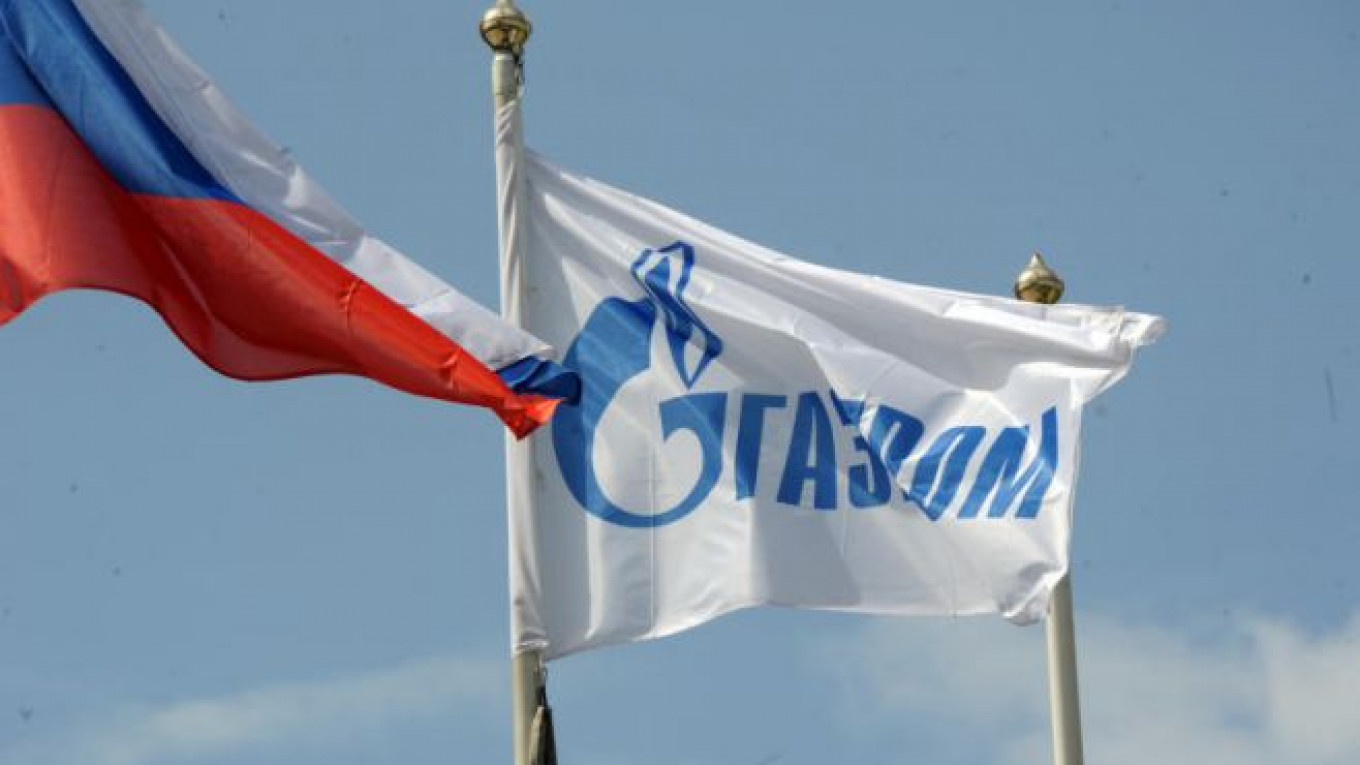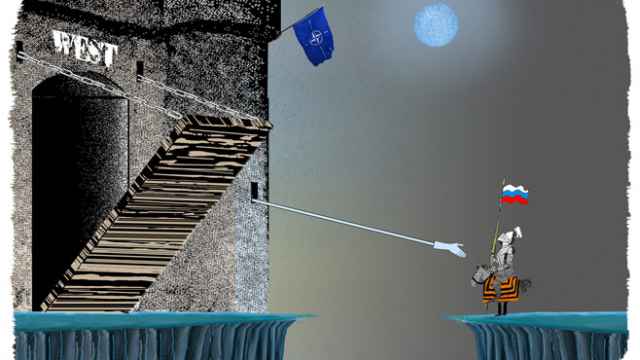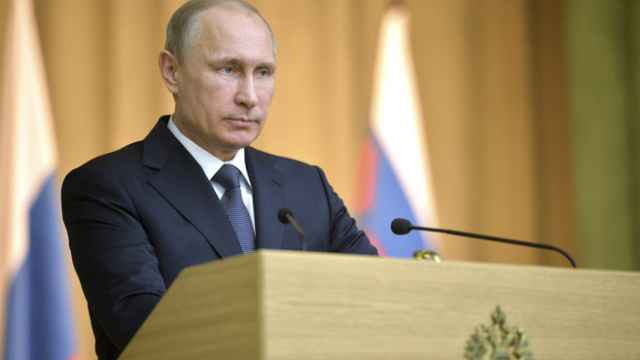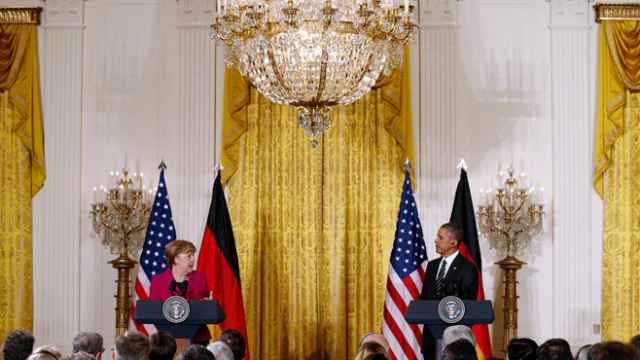A perfect storm has struck Gazprom: falling gas prices, increasing competition and a transformation in the way gas is sold internationally have coincided with fallout from Russia's damaged political relations with Europe and are putting the world's biggest gas producer under increasing pressure.
Up until 2009 when Russia cut gas supplies to Ukraine, gas exports were Russia's most powerful source of influence in its relations with Europe. Gazprom was supplying around one third of the EU's gas needs and its customers seemed happy to continue to import increasing volumes of Russian gas on a business model that had not changed for decades.
Those times are over and Gazprom is scrambling to re-cast its export strategy faced by new political and commercial constraints in Europe. At the same, its move to the Asian markets has run into difficulties
Last year's breakdown of relations with the EU over Ukraine has led European countries to accelerate efforts to diversify supply sources and reduce dependence on Russian gas.
At the same time, Gazprom is reluctantly adjusting to new EU rules designed to increase competition in the energy sector that challenge its practice of selling gas on long-term contracts. Despite strong resistance to the idea over many years, it recently held its first auctions for spot gas supplies to Europe.
Several other surprising developments have occurred in recent months and suggest that Gazprom is rushing to overhaul its export strategy but is finding its room for maneuver limited.
In June, Gazprom together with a set of European partners including Shell unveiled a project to double the capacity of the Nord Stream pipeline under the Baltic Sea. At a time of uncertainty about future gas demand in Europe as well as potential financing challenges for Gazprom, the commercial case does not appear compelling.
Politically, the timing was also strange. With relations with Europe strained over Ukraine, this was also hardly the time to start a project requiring the consent of European regulators to access EU markets given its potentially damaging consequences for Ukraine's energy security. Currently, around half of Russia's gas exports to Europe pass through Ukraine. Expanded Nord Stream capacity could deprive Ukraine of transit revenues and weaken Ukraine's hand in its negotiations to buy Russian gas.
Gazprom then announced said it would halve the planned capacity of its planned Turkish Stream pipeline under the Black Sea. Turkish Stream had been Gazprom's hasty response to its cancellation last year of the South Stream pipeline to bring Russian gas to its southern European markets. It had openly described South Stream as part of its efforts to reduce transit dependence on Ukraine to zero.
Unexpectedly, however, the Russian position on Ukrainian transit also seems to have shifted. President Vladimir Putin recently indicated that Russia would continue to supplying gas to Europe through Ukraine after 2019 when it had been due to end. This possibly reflects an understanding in the Kremlin that to receive a green light from the EU to operate an expanded Nord Stream pipeline is going to require changing perceptions of Russia's strategy if not the strategy itself.
Cross-border energy infrastructure projects work successfully when there is alignment of political and commercial interests on both sides. The current Nord Stream pipeline is not fully loaded because of a 50 percent restriction on Gazprom's use of the pipeline that transports gas from its landing point in Germany to the Czech Republic. Efforts to resolve the issue with Brussels stalled after Russia's annexation of Crimea.
Gazprom is facing difficulties in Turkey too. Moscow's relations with Ankara have gone into a rapid downward spiral over Russian actions in Syria coinciding with a legal dispute over a price discount for Russian gas sold to Turkey. This is a challenging context for pursuing cooperation on a new pipeline project.
Finally, Gazprom's pivot to Asia has also hit problems. China's preferred export route based on building the Power of Siberia pipeline is looking far less attractive for Gazprom after the more than 50 percent fall in the oil price since the deal was negotiated. Implementation is advancing at a snail's pace with no prospect of completion by the target date of 2019 and financing hard to obtain. Efforts to develop liquefied natural gas (LNG) exports in the Russian Far East have also suffered serious setbacks because of the low oil price and Western sanctions.
Gazprom is not just under pressure from a rapidly changing external environment. Its dominant position in the Russian market is also under assault. Rosneft, its main domestic competitor, is likely to try to capitalize on the disarray in Gazprom's export strategy by increasing its efforts to break Gazprom's traditional monopoly on pipeline gas exports.
Diversity of supply from Russian sources would contribute to European energy security and help protect Russia's share of the European market. Gazprom's woes could yet lead to a healthier gas relationship between Russia and Europe.
John Lough is an associate fellow with the Russia & Eurasia Program at Chatham House and a vice president with Gabara Strategies, a London-based strategy-consulting firm. A version of this article was originally published by Chatham House.
A Message from The Moscow Times:
Dear readers,
We are facing unprecedented challenges. Russia's Prosecutor General's Office has designated The Moscow Times as an "undesirable" organization, criminalizing our work and putting our staff at risk of prosecution. This follows our earlier unjust labeling as a "foreign agent."
These actions are direct attempts to silence independent journalism in Russia. The authorities claim our work "discredits the decisions of the Russian leadership." We see things differently: we strive to provide accurate, unbiased reporting on Russia.
We, the journalists of The Moscow Times, refuse to be silenced. But to continue our work, we need your help.
Your support, no matter how small, makes a world of difference. If you can, please support us monthly starting from just $2. It's quick to set up, and every contribution makes a significant impact.
By supporting The Moscow Times, you're defending open, independent journalism in the face of repression. Thank you for standing with us.
Remind me later.







